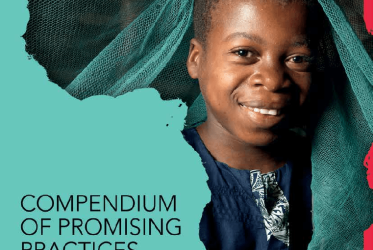The webinar was part of the Framework for Dialogue—a methodology developed by the World Council of Churches, UNAIDS, INERELA (International Network of Religious Leaders Living with or Affected by HIV) and the Global Network of People Living with HIV—that reviews existing evidence on HIV stigma, conducts an analysis, and develops joint actions between faith leaders and communities.
Participants shared their learnings from recent workshops held in both nations, and developed plans to respond to HIV stigma jointly between faith communities and communities living with HIV.
Gracia Violeta Ross, programme executive for WCC Ecumenical HIV and AIDS Initiatives and Advocacy, moderated the discussion, and also explained to those online: “We also want to hear from you about your experiences with HIV and stigma.”
She opened with a word of prayer, thanking God for the opportunity to learn from one another.
Ruth Ninsiima B. Mbalinda, executive director of the Friends of Canon Gideon Foundation, represented all the partners who participated in the Framework for Dialogue in Uganda. She shared photos and reflections from the Framework for Dialogue workshops in Uganda, and offer an overview of her work with the Friends of Canon Gideon Foundation. The action plan in Uganda includes activities to defeat HIV stigma against women and girls, respond to HIV stigma in faith communities and response to stigma causes by laws and regulations.
Helen Aphan, a board member of the International Community of Women Living with HIV, West Africa, represented all the partners who participated in the Framework for Dialogue in Nigeria. She not only reflected on the Framework for Dialogue work in Nigeria, but also described her work for a support work women living with HIV in Nigeria. The action plan in Nigeria includes rights literacy sessions for women living with HIV, working with religious leaders creating awareness and sensitization, and responding to stigma in the regions that have conflict.
Both countries will continue to have support from UNAIDS channeled by the World Council of Churches to implement the plans developing long-lasting partnerships between faith leaders and people living with HIV.







